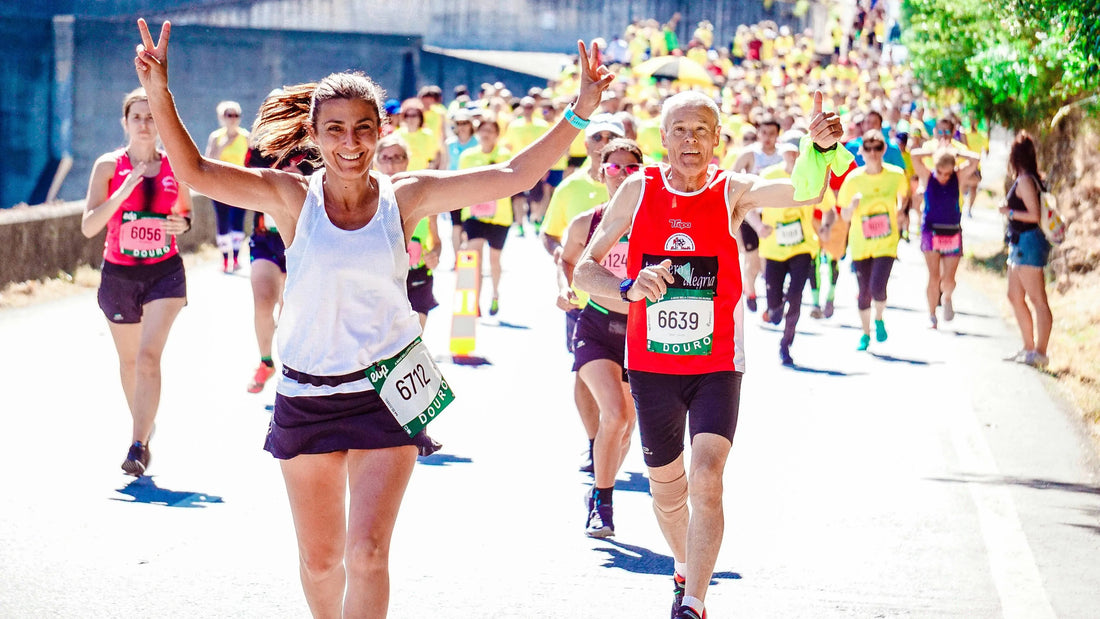Here's what you'll need to tackle a marathon, from getting in top shape to healing up afterwards:
Gear Up for Training:
- Footwear: The right running shoes make all the difference. Get fitted for a pair designed for marathon training.
- Foot Support: Custom or store-bought insoles can help with proper foot alignment and prevent injuries.
- Compression Clothing: Socks, sleeves, and tights can improve blood flow and fight off muscle fatigue.
- Braces and Supports: Extra support for knees, ankles, or wrists can protect vulnerable joints.
- Hydration and Fuel: Backpacks or bottles to carry water and electrolyte drinks, plus energy gels and bars for long runs.
Boost Your Training:
- Recovery Tools: Foam rollers and massage sticks help ease muscle tightness and speed up recovery after training.
- Strength and Flexibility: Resistance bands let you work on strength and flexibility, key for marathon success.
- Track Your Progress: Heart rate monitors help you train at the right intensity, while GPS watches show distance, pace, and time.
Heal Like a Champion:
- Temperature Therapy: Ice packs reduce inflammation from injuries, while heating pads soothe sore muscles.
- Deep Tissue Relief: Massage guns provide targeted relief for muscle soreness.
- Faster Recovery: Compression boots can improve circulation and shorten recovery time.
- Support and Stability: Elastic bandages and kinesiology tape can help heal sprained joints and prevent injuries.
- Mobility Aids: Crutches or canes may be needed for serious injuries, while braces provide stability during healing.
Physiotherapy at Home:
- Balance Boards: Improve stability and strength in your lower legs.
- Therapy Balls: Great for a variety of exercises to increase strength and flexibility.
Don't Forget the Basics:
- First Aid Kit: Be prepared for minor cuts, blisters, and scrapes with bandages, antiseptic wipes, and ointments.
- Doctor's Visits: Regular check-ups with a healthcare professional will help address any health concerns.
- Rest and Recharge: Enough sleep and rest are vital for both recovery and peak performance.
- Stretch and Strengthen: Regular stretching and strength training exercises help prevent injuries and make your muscles stronger.
A Few Extras to Consider:
- Nutritional Supplements: Talk to your doctor about supplements like vitamins, minerals, and protein powders to support recovery and performance.
- Mental Toughness: Consider mental health resources or stress management tools to handle the mental challenges of marathon training and recovery.
By using this equipment wisely, marathon runners can optimize their training and recovery, minimizing injuries and maximizing their performance on race day.

